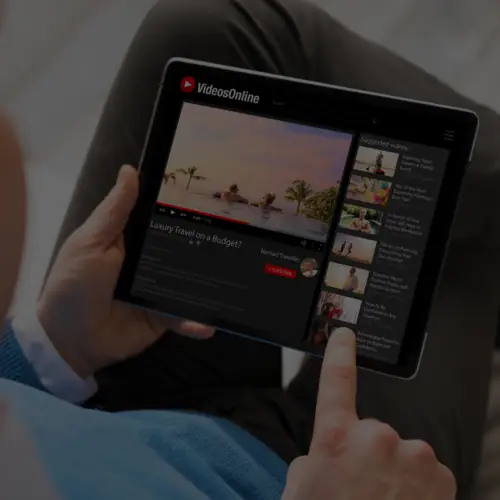29 Jul Widget Optimization Demystified – 16 Experts Weigh In
Widgetbait gone bad sparked intense controversy about the utilization of anchor text within widgets. Google has expressed concern with blatant attempts at manipulative anchor text insertion inside the widget itself. Here is Matt Cutts latest quote:
“Some of the criteria that I mentioned included whether the links were hidden in the widget, how off-topic the widget was (a zombie-themed widget pointing to pay day loans and cash advance sites would be pretty off-topic), whether the target of the links went back to the original widget location or to some completely different third party, whether the anchor text was simple (“example.com”) vs. spammy or keyword stuffed, whether the publisher received clear disclosure that the widget would include extra links (burying the disclosure that a widget would include links down in subsection 29a, paragraph 5 would be poor disclosure), the number of links in the widget, etc.”
Where is the line here? What actions constitute running the risk of penalization?
I decided to ask some of the leading experts in the industry their thoughts on the following situation, in an attempt to unearth what is kosher and what is not.
The Situation
A site that sells chairs decides to build a widget. The widget shows the top 10 selling chairs on their site.
The chair selling website is called : chairsunlimited.com
At the bottom of the widget the following text is displayed: “Grab your Chairs Widget”
The phrase “Chairs” links to chairsunlimited’s widget page on the site, which explains how to “grab” the widget, for use on your site.
Should chairsunlimited be penalized in Google for deploying the tactic described above?
In that specific case there’s no reason chairsunlimited.com should be penalized for the widget. The individuals that add the widget to their site know where the widget came from, what it’s promoting and see the text with a link pointing to the site. If the title text is the same and there isn’t anything fishy going on behind the scenes the site appears to be “playing by Google’s rules.”
If the link is going back to the site where the widget came from and relevant is probably ok.
I’d put it in a disclosure, but as long as it’s not manipulative then I think it’s still a good strategy.
1) They should not and likely would not be penalized.
2) It’s not a line but a spectrum, as Matt Cutts discussed at SMX Advanced. Ontopic, linked to widget-originating page is OK. Offtopic, linked to widget-originating page is so-so. Offtopic, linked to another page on same site as widget-originator is meh. Offtopic and linking to non-originating site/page = you’re gone.
It is a fuzzy line, indeed. On the one hand, you spent your time (and money) creating something fun/beneficial for others to use, shouldn’t you get credit for it? Part of me feels that no matter what kind of link bait you create (which is almost always off-topic, anyway), you should be able to get the full benefit from it being a success. However, I can see where Google is coming from and the spam that it can generate.
In the example you provided, however, I think Chairs Unlimited has every right to benefit from the anchor text. They provided a relevant tool for their users, and because their users benefited from it, they linked back to it. Isn’t that the reason links are incorporated into the algorithm in the first place? So that when other related websites endorse you for your great site/widget/resource, you benefit from it?
Another example of Google dictating internet protocol. Shrug. Specific to your example, I think it’s perfectly legitimate.
You first of all have to define which type of technology is being used for the widget, and whether that in itself justifies the text link.
1. A simple graphic with the link purely for viral purposes, and optionally some CSS – How Much Is You Blog Worth is a great example.
2. Raw javascript – it could be argued that a text link to the information or the company serving the widget is justified for accessibility reasons within noscript – Bidvertiser use this approach.
3. Javascript / flash / html using an embed – if it is likely that the widget will also be distributed by people forwarding via email or RSS readers that might not support that kind of embedded code, it is very reasonable to include code within noembed tags – used by many embedded widgets such as Scribd.
4. A text link that is styled using javascript replacing it with a graphic – think this isn’t legitimate? Technorati use this approach.
As for anchor text, why be greedy? Just use “Top 10 Chairs Widget” which is exactly what it is, and when someone clicks through, have a raw html version of the contents, instructions on how to share it for different platforms, and mention that you include a simple text link in the widget for accessibility reasons.
The examples I gave above are still taking a risk in most cases, and for blogs it is worth thinking about not just Google, but also Technorati.
Ultimately any site that gets burned or a penalty for widgets is stupid, or has hired someone who needs to learn some fundamentals of viral marketing such as I covered in Viral Marketing Safeguards
I think the example that you gave is pretty safe even under Matt’s criteria (though I’m not sure why you’d link to the “grab widget” page).
Let me put forth the following theory: A successful widget campaign will overload the amount of inbound anchor text to the site for whatever anchor text is being used in the widget, likely tripping a filter. One would think that the filter has an exception for words in the domain name of the site. So, it would be likely desirable to have “chairs” in the domain name of a site where a “chairs” widget strategy is employed.
However, the open question I pose is whether in Oatmeal’s case he’s much worse off just using the name of his site in the link text (as opposed to his chosen keywords) so long as the remainder of his on and off page factors are ideally aligned for his particular keywords. I don’t know the answer to this and I haven’t researched it at all…but if Google is smart enough to know the topic of his site and decides to reward Oatmeal for widget baiting successfully, Google doesn’t need to be told ad nauseum that Oatmeal’s site is about “Online Dating” even though Oatmeal followed conventional wisdom in his strategy.
 Jordan Kasteler – Utah SEO Pro
Jordan Kasteler – Utah SEO Pro
No, ChairsUnlimited.com should NOT be penalized. Providing quality content (like Google says) is a great way to get links. A viral widget is quality content to share. As long as your link isn’t hidden then there should be no penalty on which anchor text you choose to use.
Technically, it shouldn’t matter if you embed another person’s link in that widget either. If someone chooses to put that widget on their site it’s their problem, not yours. So as long as the link is transparent then all is fair in war with Google. 🙂
It’s unfortunate to see people get penalized for this just because they’re an online media icon or their company is pervasive.
 Will Reynolds – SEER Interactive
Will Reynolds – SEER Interactive
No way, they shouldn’t be penalized! I would even think that the widget page could in many instances be the WRONG page to send a user to. Lets say I have a top 10 chairs widget, and at the bottom of the widget I have something that says “get more information on our other chairs” as a text block with the word “chairs” or the whole thing linked to a page on my site about chairs…that should be fine right? If you say “get this chairs widget” and you link chairs to some page other than the page to get the chairs widget then in my opinion that would be red flag worthy.
Personally, I don’t think they should be penalised as such, I think the question is should they benefit from the widget. Because they have produced content that people like to use on their websites, does that make them a better result for searchers in Google…probably not.
There are ways they could make it less optimised, such as:
- Link through with the whole text
- Change it to ‘Get this widget’
Or what I would see as being more ethical in Google eyes and still with the possibility of good results would be saying get this widget at ‘Chairs Unlimited’ which would be linked to the website. I don’t think Google would be right to penalise anyone for linking to themselves with their website / brand name. Chairs Widget doesn’t seem too bad as anchor text but then where do we draw the line, it’s definitely an interesting debate but a question that I don’t think anyone can answer fairly that would cover all bases.
 Hugo Guzman – Zeta Interactive SEO
Hugo Guzman – Zeta Interactive SEO
ChairsUnlimited should definitely not be penalized. The same rule that applies for conventional web page anchor text should apply to widget anchor text. If it’s on topic and describes the widget in question, then Google should let it ride.
 Dave Snyder – Search & Social
Dave Snyder – Search & Social
This type of “widget bait” should not be penalized.
Why?
Because there is no deception here. The text is displayed, the site owner is making a conscious decision to make that “editorial vote” for that widgets page, and the anchor text is completely related to the site and the use of the widget.
If these types of widgets become penalized regularly , are press releases and article submissions next. Marketers shouldn’t be penalized for creativity and filling a market need.
Well, because there is some hazy language (as always) from Google we are always left to guess at where the lines are. They seem pretty fluid and moveable to suit the ultimate needs. But as I see it from what you’ve quoted, that if just the word ‘chairs‘ was linked, it is a whackable offence. If we linked the entire phrase, “Grab your Chairs Widget” then it should not be a problem.
RE: Matt Cutts “whether the anchor text was simple (“example.com”) vs. spammy or keyword stuffed, “
This leads me to believe that simply targeting a single word in the phrase is an outright manipulation whereas the entire phrase is merely a veiled one… ha ha ha… sad, but this is what we live with.
No, if the link is clearly visible and disclosed, I do not think that they should be penalized. I would, however, advise to use “Chairs widget” as the anchor text, in stead of just “chairs”. After all, you don’t want the widget page to rank for “chairs”, but a different page (probably the homepage?). Trying to direct as much link juice to the homepage (or multiple important pages) from the widget page is probably the best
and safestoption here.
With widgets, as with any SEO technique, it’s all about “perceived” intention. In a recent video, Matt Cutts discussed how after spending so much time spam fighting, the G-Team can’t help but see the intention of everything they come across.
I would say your example with “Char Widget” as the anchor text is on topic and accurate enough to pass a hand check. That said, all of the site’s marketing techniques are sure to be considered by any spam fighter. Keep it clean overall and don’t make a fool of the engines by openly discussing your success and you can sleep good at night.
Or you could do what I do. Put on a Matt Cutts mask, pet my kitty, and pretend to see things through his eyes. Creepy yes, but effective!
There has to be a line drawn somewhere if you are going to penalize certain types of links. I believe that the “line” should be drawn when a link (or the advertising) is off-topic or not. The search engines are sophisticated enough to know whether something is “on topic” or not. I would actually go a bit further and say that it would be “okay” of the link is in the same general category. For example, one technology-related link on another technology-related site. I don’t think it would be okay for a telecom site to advertise on a site about chairs, for example. I would categorize telecom as technology and chairs as furniture or even shopping (the shopping category as a whole).
In this chair example, I would fully expect that if it’s a chairs or even an office furniture or furniture widget then the link would point to a chair, office furniture, or furniture website. I think it all ultimately has to do with usability and what the user would expect when they saw the widget and the landing page they’re taken to when they click the link. I would liken this to the Google AdWords Quality Score. Your “score” would go up if someone clicked on the text link and found something useful and didn’t immediately click away from the landing page. If the link on the widget would have a good “quality score” then I believe that the link should “count” and it should be okay.
Summary
The general consensus seems to be that you should be ok. However, it is still somewhat granular, like most things with Google. They do what they want, it is their search engine, and there has been clear evidence of increased policing as of late. To be on the safe side, I think the best route to take is to simply link the entire phrase in this case. In all honesty you would probably be fine with the above example, however a hand check, or undesired attention could push you over the line.
















